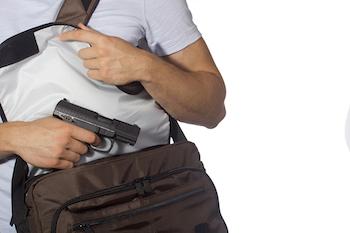Connecticut Court Issues Conflicting Ruling on Requirement to Show Pistol Permit
 According to the U.S. Centers for Disease Control and Prevention (CDC), some 33,000 deaths around the country each year are related to firearms. Considering such statistics, combined with the seemingly endless stream of high-profile shootings every few weeks, it should come as little surprise that the state of Connecticut and other jurisdictions take their gun control laws very seriously. A recent decision by a state Superior Court, however, suggests that following the letter of such laws may not be enough to keep some gun owners out of trouble.
According to the U.S. Centers for Disease Control and Prevention (CDC), some 33,000 deaths around the country each year are related to firearms. Considering such statistics, combined with the seemingly endless stream of high-profile shootings every few weeks, it should come as little surprise that the state of Connecticut and other jurisdictions take their gun control laws very seriously. A recent decision by a state Superior Court, however, suggests that following the letter of such laws may not be enough to keep some gun owners out of trouble.
Request to Show a Permit
A case before the Superior Court this past spring arose from an incident in 2013 when two men were walking on a public boardwalk openly carrying loaded handguns. A local police officer stopped the men and requested to see their permits. One of the men immediately complied, but the other refused, despite truthfully stating he had the permit on his person, later citing the officer’s lack of reasonable suspicion. The man was subsequently charged with interfering with police and had his permit revoked. The man successfully applied for reinstatement of his permit, a decision that was appealed to the Superior Court by the Commissioner of the Department of Emergency Services and Public Protection (DESPP).
In its ruling, the Superior Court upheld the permit reinstatement, verifying that the man had not technically violated the law regarding pistol permits. The law, the court held, is “absolutely clear.” It only requires an individual to “carry” a valid permit while carrying a gun; it does not require the permit to be shown, even upon request. The ruling went to explain that, regardless of what the legislature may have intended in drafting the law, the court is required to uphold the law as it is written. Therefore, the man committed no weapons-related violations and should not be denied his permit.
Interfering with Police
Although the criminal charges against the man for police interference were dropped prior to the Superior Court appeal, the court weighed in on the possibility of such prosecution. Based on the broad language of the law pertaining to the obstruction of police duties and the circumstances of the case, the man did, in fact, violate the statute. While police have other means of verifying that a person owns a permit to carry a firearm, those means are much less convenient and more time-consuming. Even considering the absence of reasonable suspicion of criminal activity, the police did nothing more than ask for the permit, and the man’s rights were not under threat of being compromised.
What Does it Mean?
For Connecticut pistol permit holders, the ruling presents an interesting dilemma. The law requires that any person who carries a handgun—making no distinction between open and concealed carry—must also carry a permit. Failure to carry a validly owned permit is subject to a $35 fine. A person who carries a handgun without obtaining such a permit is subject to a mandatory minimum sentence of one year in prison. As the court indicated, however, the handgun permit law itself cannot force an individual to produce the permit upon request. Other more general provisions of seemingly unrelated laws may apply, leading to prosecution on the grounds of obstruction a peace officer, which is a Class A misdemeanor.
If you have been charged with a weapons offense or any other crime related to your pistol permit, it is important to seek qualified legal representation as quickly as possible. Contact an experienced Hartford criminal defense attorney today to schedule a confidential consultation. Woolf & Ross Law Firm, LLC will review your case, help you understand your options under the law, and work with you to ensure your rights are fully protected.
Sources:
http://www.cdc.gov/nchs/fastats/injury.htm
https://www.cga.ct.gov/2015/rpt/pdf/2015-R-0140.pdf
http://www.nhregister.com/general-news/20141002/connecticut-firearms-board-sued-over-returning-derby-mans-pistol-permit
https://www.cga.ct.gov/2013/rpt/2013-R-0001.htm
https://www.cga.ct.gov/2011/pub/chap952.htm






